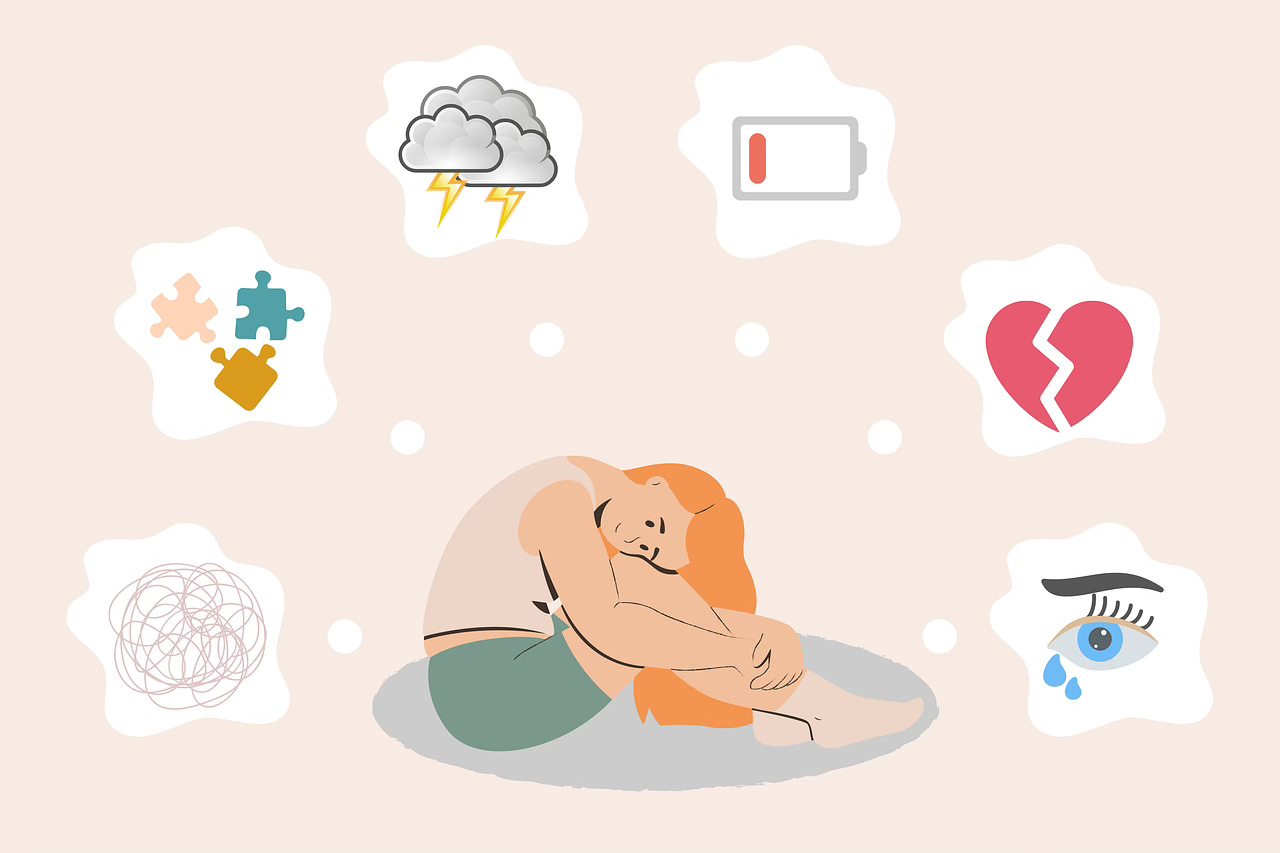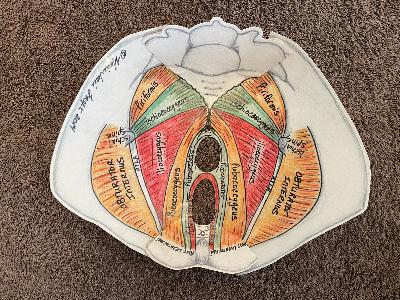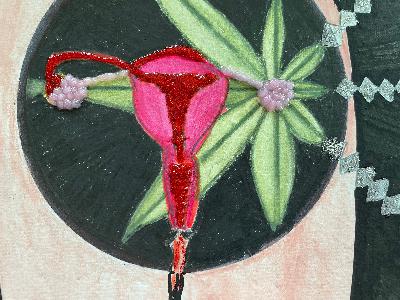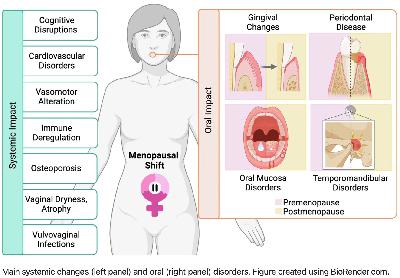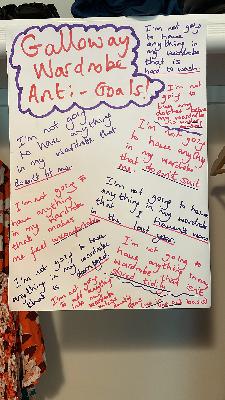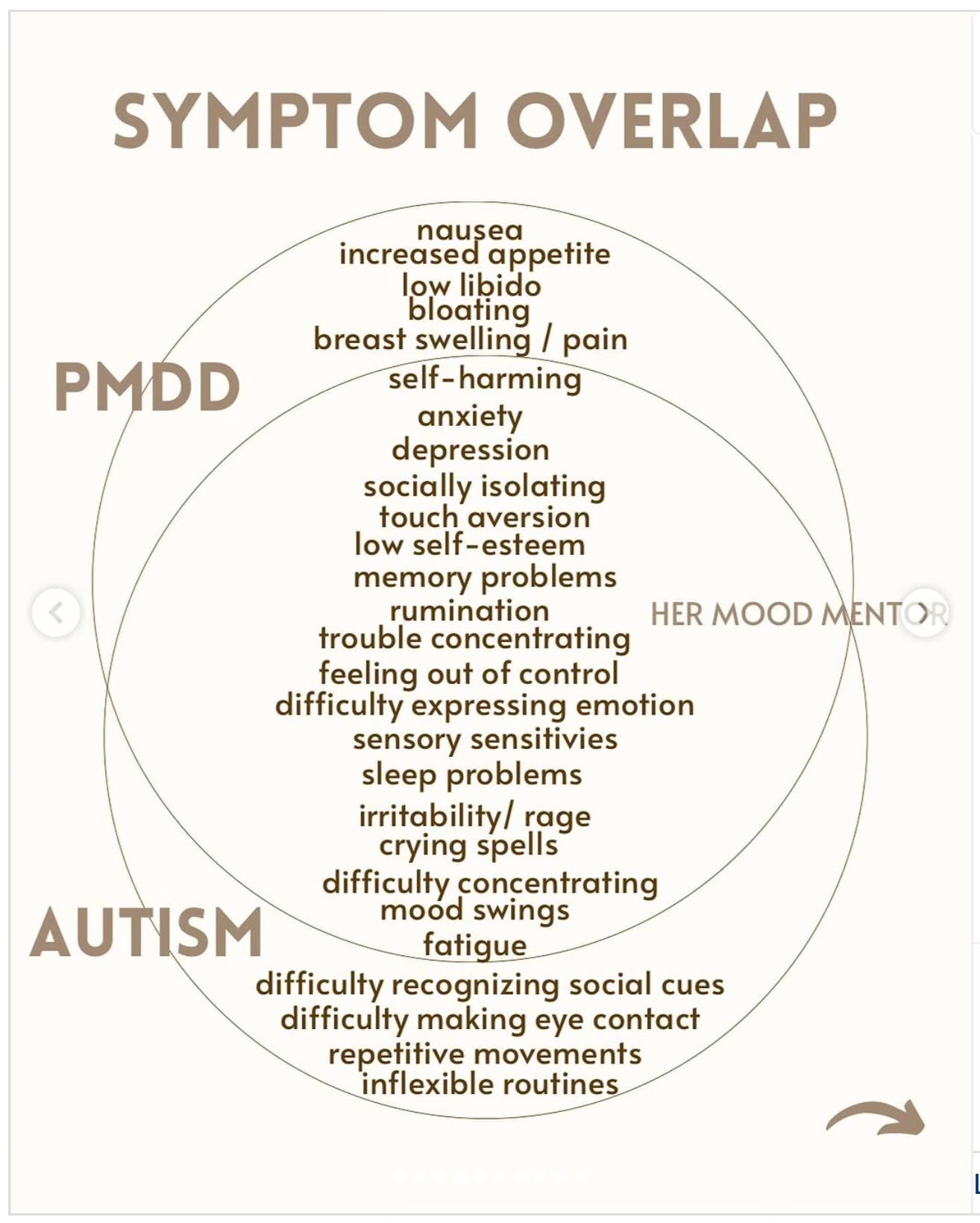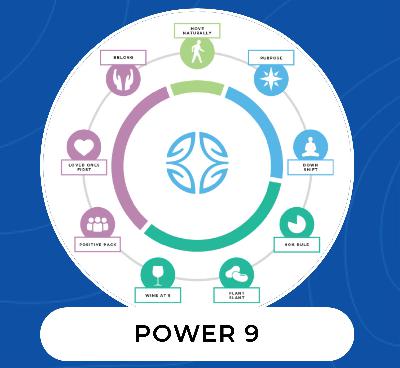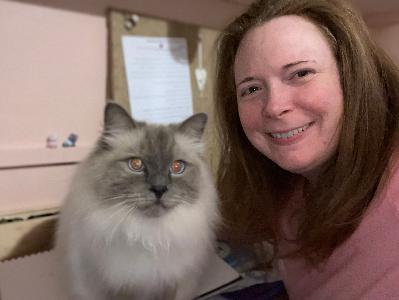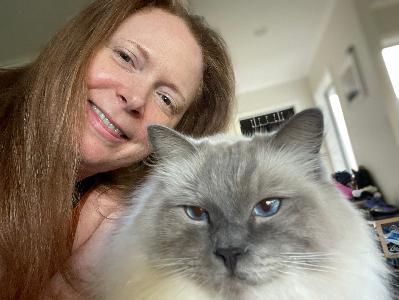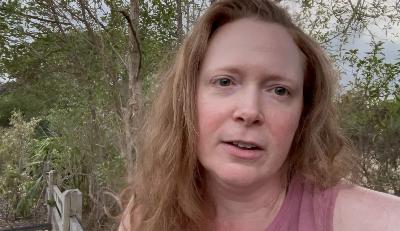The Mind-Blowing Symptoms of Perimenopause... 🤯
Description
Hi Team Auti Peri,
My autistic perimenopause is an absolute shitshow right now. How is yours treating you?
This week I have had bodily aches and last night I convinced myself to do the five minute evening yoga flow that used to be habitual. I don’t know if my body was aching because I hadn’t been doing it but, just as I was gently finishing triangle pose a muscle below my left hip absolutely wrenched itself! I couldn't breathe, whilst *trying* to breathe into it (those hypnobirthing sessions I took ten years ago are still paying off, baby! Ha ha, “baby”! Geddit?)
Wincing, I hobbled all the way to the kitchen (where, alas, no soothing birthing pool and kind doula was awaiting me), grabbed the ice pack from the freezer and double dropped paracetamol. Inserted two Utrogestan (progesterone capsules) you know where, slapped my night time pump of oestrogen gel onto my arm and hoped it would soon stop hurting.
Thanks to extreme HRT-defying levels of insomnia, I woke up several times in agony, struggling out of one awkward sleeping position into another. Nothing would stop it hurting, and 24 hours later it still hurts.
Yes, I must have pulled a muscle, and normal injuries will occur in midlife. But I’ll be damned to believe that this agonising muscle pain isn’t distinctly down to perimenopause. Do I have evidence of this? Nope - you and I know I have no medical training whatsoever, apart from that one day first aid refresher course I took a decade ago.
But, I know this is perimenopause! And I don’t know why I am still symptomatic when I am in a chemical menopausal state (it’s temporary, and reversible, much to my ongoing distress) caused by hormone blockers to alleviate my very late diagnosed premenstrual dysphoric disorder (PMDD). Alongside this treatment I am on carefully titrated hormone therapy (HRT/MHT) and things should be settled.
I have never felt any less settled in my life!
Fortunately I have doctors who are validating my lived experience of autistic perimenopause, and are empathising with my ongoing onslaught symptoms. I am waiting to see a public gynaecologist to have EVERYTHING removed by hysterectomy ASAP before I go completely out of my own mind.
But what is it like when our doctors don’t believe us? When they dismiss our symptoms, and struggle to engage with our autistic communication?
What is it like to be told by medical “experts” that, not only are you not autistic (“Or you wouldn’t be here and giving me eye contact”), but that you are “too young to be perimenopausal”.
If you have heard either or both of these statements, welcome to the club.
Just because they dismiss you, doesn’t mean you are wrong. Only you know what is happening in your body and mind for you at any given time. If they don’t understand that, I would recommend getting a second opinion.
If that isn’t possible, you can take notes using a symptom tracker as supporting evidence. You may also wish to take along a trusted person who can advocate alongside you. Surely it’s harder for them to dispute you both? I would like to think so, anyway.
Okay, so I am going to make some bold claims here. I have little to no supporting research, because there isn’t enough research into perimenopause, and the experts are still arguing amongst themselves and invalidating perimenopausal people everywhere. But I read all the time about seemingly random symptoms that occur in midlife that may be perimenopause related.
Some of them may seem obscure. Perhaps they are, but those of us with interoception differences (either having heightened or reduced sensitivities in our internal states) are easily dismissed by healthcare practitioners.
Speaking to you as an advocate in a peer support role, not from a medical background, I want to remind you - again - that if a doctor minimises your lived experience, it doesn't mean you are imagining these symptoms.
For example, a common symptom is for menopausal people to experience brain fog. Often to the extent where we believe we are losing our minds, or in early stage dementia.
This feels terrifying and shameful. We may feel like a burden to others and that our loved ones are better off without us.
Please believe me when I tell you that lots of people feel this way, and I receive many comments and messages about this. It is not an uncommon experience, and it may be more widely experienced in the neurodivergent community, since many of us have been living with brain fog all our lives. At perimenopausal onset, our cognition may feel like it has dropped off a cliff. That is the inspiration for the latter part of my publication’s title: A Temporary Regression.
I want to normalise this phenomenon.
Oddly though, there are still doctors who say there is no empirical evidence that brain fog exists as a phenomena in perimenopause, which I frankly find ludicrous.
There are many other symptoms that are more commonly experienced, but are kept on the down low due to societal taboos. Namely: low/no libido, and dry and/or atrophied vaginas and vulvas.
Atrophy isn’t what it sounds like. Your skin may be sore or raw, you may have recurrent urinary tract infections (UTIs), but if you are waiting for your cervix to prolapse via your vag and descend out of your labia before you will eventually see your doctor, you are in for a horrendous time.
I wrote about this a long time ago, so am re-sharing my post on vaginal atrophy in case you are interested (no OnlyFans content, I promise):
We all know what the regular symptoms of peri/menopause are, right? Here is a quick refresher, with thanks to the Australasian Menopause Society (factsheet and infographic):
* Changes in menstrual periods is an early symptom
* Hot flushes
* Night sweats
* Problems sleeping
* Pain in your joints
* Tiredness
* Anxiety or mood changes
* Dry vagina
* Overactive bladder or discomfort
But these stereotypical symptoms are just the tip of the iceberg.
Well, maybe a better analogy would be a cliff face, with the main symptoms at the top, and the lesser known ones near the middle and bottom. If you get any or all to an extreme degree, you too may feel like you have been drop kicked off the top of the cliff, spiralling as you helplessly descend, hitting the ground hard, and feeling left for dead.
I will spare you an infographic accompaniment to that gory metaphor…
Delving deeper into the research 👓 we will find that around 34 symptoms are commonly stated:
I haven’t found an extensive symptom checker, but more comprehensive lists are available. It is strange and unhelpful that menopause organisations list many possible symptoms, yet produce woefully short charts and trackers. Don't they know that we need thorough and comprehensive information?! Haven’t they heard of autistic perimenopause??!!
No and no.
So let’s keep pushing through. I hope you are still with me. Please don’t give up hope. I know of many excellent academic researchers pushing for our recognition and validation, but that is a long drawn out public dissemination process. Not to mention getting that information into policies, medical schools and primary care/GP practices.
Whilst we wait for them to catch up with what we already know, we need to keep educating ourselves and staying in community.
***Hours of Googling later… If the academics don’t know this stuff, let’s not expect AI to have a clue!***
The Join the dots: A-Z symptoms list is useful as the list includes a description of each of the symptoms listed. Please open the link for all the list items.
There are other symptoms that are less taboo and more obscure. They crop up in midlife and we don’t realise they may be due to extreme hormonal flux.
Here they are:
Cold flushes
Scalp tingling
Metallic taste in mouth
Tennis elbow
Frozen shoulder
Dry eyes
Bloating
Blood sugar dysregulation
Phantom smells
Hair loss/thinning/receding hairline
Increased facial and bodily hair growth
Tinnitus
Breast pain
Bleeding gums
Dental problems
Burning mouth syndrome
Electric shocks
Brittle nails
Dizziness
Hormonal acne
Osteoporosis
Roasacea
Body odour
Melasma (darker patches of skin, usually on the face)
Heart palpitations
Sudden onset of phobias (e.g. driving)
Body temperature dysregulation
Formication (sensation of insects crawling on the skin)
Weight gain
Headaches/migraines
Digestive issues
Skin tingling
Sources of obscure symptoms:
Uncommon Signs & Symptoms Of Menopause
What Are the Most Surprising Menopause Symptoms?
10 surprising menopause symptoms
I feel like the dyspraxic NDers amongst us 🙋♀️ will be all too familiar with this one already:<


